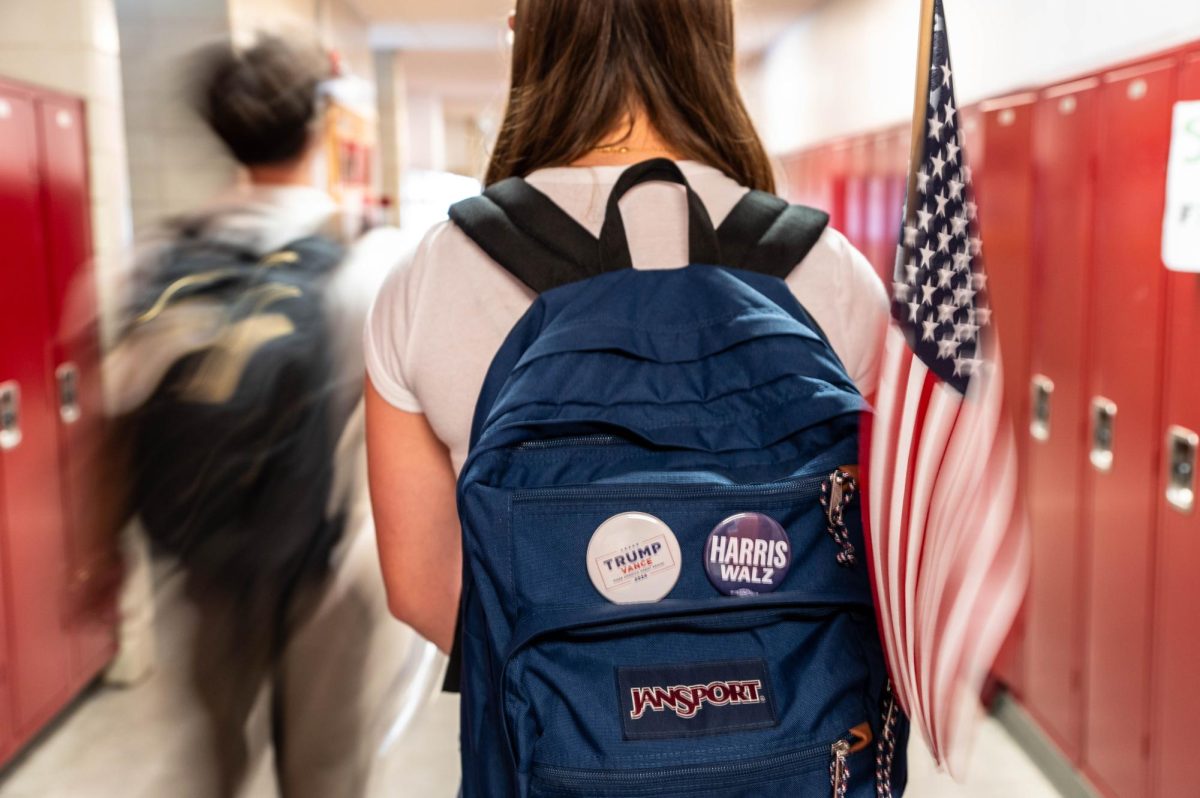With just a few weeks to go in a presidential campaign marked by a late candidate switch, rancor and assassination attempts, U-High students say they are eager to hear in their classes about how the candidates plan to govern the country.
The final weeks of the race between Vice President Kamala Harris, the Democratic nominee, and former President Donald Trump, the Republican nominee, gives students and their teachers an opportunity to discuss what history can tell them about one of the nation’s most bitterly fought campaigns.
“So far we have discussed political philosophy to determine the ideal way to run a country,” said Alexander Saratovsky, a senior, of the discussion in his AT Comparative Politics class this fall. “A U.S. election is a practical application of our theory.”
“Everyone has preconceived notions about the candidates, so it would be more productive to the most important policy issues,” Alexander said. “Lab Schoolers have strong opinions, and this should lead to constructive discussions about how to make America better. I also hope we encourage everyone to vote.”
Most U-High students will be too young to vote on Nov. 5, but some said that they want class discussions to explore public policy and the integrity of the vote itself.
“I hope they educate us on the voting process and how it works, so that we are prepared for when we can start voting,” Angela Fitzgerald, a junior, said.
Given the campaign’s vitriol, students said they expect teachers to stay balanced, leaving discussions of voter preference for outside school in order to ensure productive conversations.
“If classes ended up talking about the election, I would want them to take the most neutral path, just laying out Trump’s and Harris’ policies without bias or anything like that,” Justin Salomon, a sophomore, said, “I just want to learn more about their policies and what they stand for, so l can have civil and well-informed discussions.”
Hearing diverse views, some said, would have value.
“I think through different points of view, I would be able to see how other people view the election and see how it could be similar and different from my view,” Liv Rodriguez, a sophomore, said.
Some suggested that the election might be a topic for a number of courses — including English class — but most said their history class would be the best venue.
Sam Fajerstein, who is teaching four sections of AT U.S. History, said he intends to include lessons related to the election, particularly as it gets closer. Mr. Fajerstein said he recently asked his students whether they would like to discuss unfolding news events like the election in class. They said yes.
Mr. Fajerstein said he views the campaign as an opportunity to examine how the nation’s history of elections informs the present.
“What does history tell us about this current election,” he said, “and how do we feel as Americans in the present moment, while also reflecting on our role as Americans throughout history?”
Oliver Wilson, a senior, said he hopes to learn more about the election in his AT U.S. History class.
“It would be cool to analyze the election right now and its implications for the future,” Oliver said, “and how it applies to times when this has happened in the past.”





















































